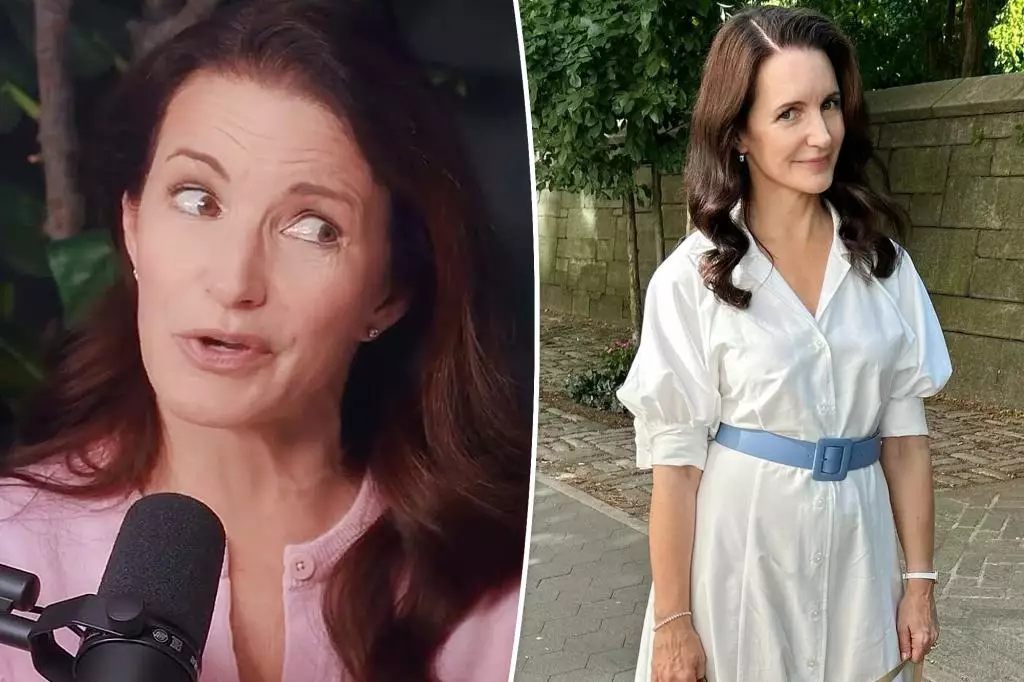In an episode of her podcast “Are You a Charlotte?”, actress Kristin Davis recounted a personal experience that is both relatable and cautionary. She revealed that she once lent $5,000 to an “out-of-work actor” she was dating, which significantly altered the dynamics of their relationship. This incident serves as a profound lesson on the complexities of generosity and the repercussions it can have when boundaries are crossed.
Davis’s story is not merely about a financial transaction; it touches on the emotional and psychological dimensions that come into play when personal relationships intersect with monetary assistance. Initially, she believed that her support would bolster the actor’s career, a sentiment all too familiar to those who have offered help to loved ones during tough times. However, her well-intentioned gesture led to an unexpected ghosting episode, leaving her feeling embarrassed and disillusioned.
The actress described how lending money changed the relationship’s dynamics “in a horrible way.” This sentiment is echoed by many who have experienced similar situations; when one party offers financial help, it can create an unspoken debt or shift in power. Davis believed she was aiding a talented individual, but her kindness inadvertently placed her in a vulnerable position. The disparity of financial stability resulted in her feeling taken for granted, demonstrating how such actions can strain naturally formed emotional bonds.
Davis’s reflections indicate a broader issue: even those with good intentions can find themselves in precarious positions. The transition from romantic relationship to financial dependency can lead to resentment or withdrawal from one party, which is exactly what transpired. Her description of banging on his door in desperation illustrates the intensity of her need for closure and acknowledgment—a yearning that reveals the emotional toll of her experience.
The Lesson in Ghosting
The phenomenon of being ghosted speaks to a sense of betrayal and confusion that can envelop those left in the dark. Davis’s experience resonates on multiple levels, particularly in the entertainment industry, where relationships can often be transactional. The unnamed actor, once a partner, became a ghostly figure, illustrating the fragility of trust. The emotional ramifications of being ghosted extend beyond mere disappointment; they can foster a profound sense of insecurity in one’s self-worth and judgment.
Interestingly, Davis mentioned that the actor is now “very successful,” adding an additional layer of complexity to her narrative. It raises questions about the nature of success and how it can shift interpersonal relationships. Did her support inadvertently kickstart his career? Or did his success serve as a reminder of her perceived failure to maintain their connection?
Ultimately, Kristin Davis’s tale serves as a cautionary reminder of the potential pitfalls that come with kindness and generosity. It invites listeners to reflect on their boundaries and the importance of maintaining them in relationships. While lending a helping hand can provide support during difficult times, it’s essential to consider the implications of such actions thoughtfully. Relationships thrive on mutual respect, and understanding the complexities of personal dynamics can safeguard against disappointment.
Through her experience, Davis encourages conversations about accountability, boundaries, and the intricacies of human relationships. The interplay of kindness and emotional safety is delicate, and her journey serves as a valuable lesson for all navigating the tumultuous waters of personal and professional connections.

